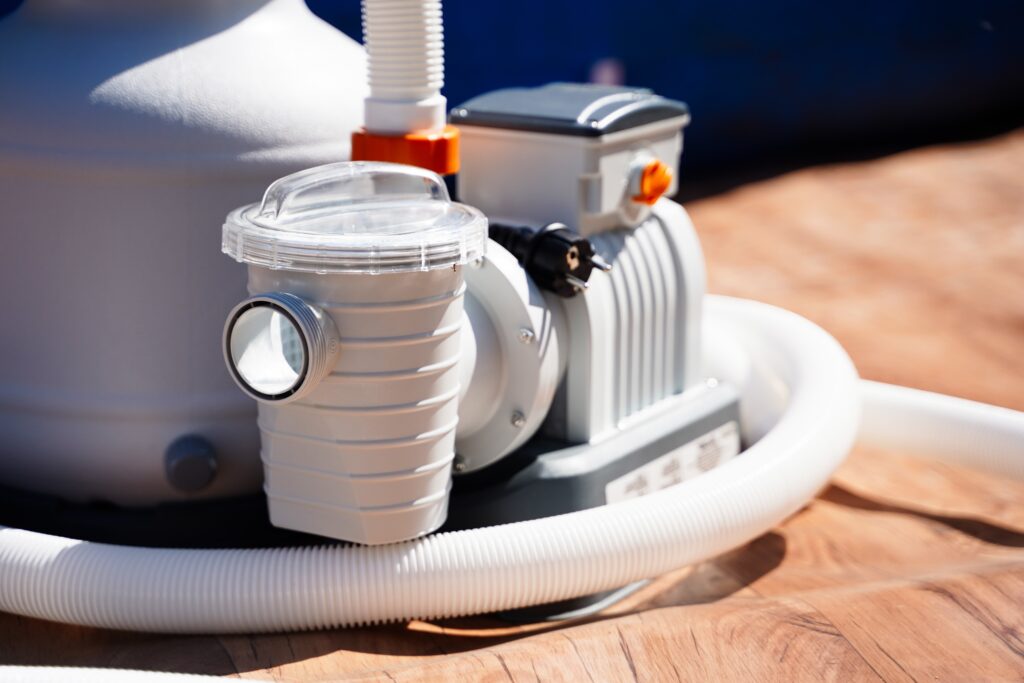A swimming pool is a great addition to any home, but it also requires regular maintenance to keep it clean and safe for use. Here are seven tips to help you keep your swimming pool clean and well-maintained:
- Skim the surface regularly
Leaves, twigs, insects, and other debris can quickly accumulate on the surface of a pool, making it look unsightly and reducing the effectiveness of the pool’s filtration system. Always ensure that the water level is halfway up the skimmer box and that the returns are creating appropriate flow to allow the automatic skimmer to do its job. Skimming the surface of the water regularly with a leaf net can also help to remove debris before it sinks to the bottom of the pool. You should aim to skim your pool at least once a day, especially during periods of heavy use or when there are high winds or storms.
- Brush the walls and floor
Even with regular skimming and filtration, some debris may still settle on the walls and floor of the pool. Brushing these surfaces regularly can help to loosen and remove any dirt, algae, or other buildup. You should use a pool brush designed for your pool’s surface (concrete, vinyl, or fiberglass) and brush the entire pool once a week.

Pool water filtration system
- Vacuum the pool
In addition to skimming and brushing, you should also vacuum your pool regularly to remove any debris that has settled on the bottom. There are different types of pool vacuums available, including manual vacuums and automatic pool cleaners. For best results, you should vacuum your pool at least once a week, or more frequently if you have a lot of trees or other debris in your backyard.
- Monitor and adjust the pool’s chemical balance
Proper chemical balance is critical to keeping a swimming pool clean and safe for use. You should test the pool’s chemical levels regularly (at least once a week) using a pool test kit. The three main chemical levels to monitor are pH, chlorine, and alkalinity. The ideal range for each of these levels depends on the type of pool you have and other factors such as the temperature and weather conditions. If you find that any of these levels are out of balance, you can adjust them using the appropriate chemicals.
- Shock the pool
Even with regular maintenance, swimming pools can develop algae, bacteria, and other nasty contaminants that can’t be removed through regular filtration and chemical balancing. Shocking your pool with a large dose of chlorine can help to eliminate these contaminants and restore your pool’s clarity and cleanliness. You should shock your pool on an as needed basis.
- Maintain the pool’s filtration system
The filtration system of your swimming pool is one of the most important components. It helps to remove debris and other contaminants from the water and keeps it circulating properly. You should check your pool’s filter pressure regularly (at least once a week) and clean or backwash as needed.
- Keep the pool covered when not in use
Covering your pool when it’s not in use can help to reduce the amount of debris that falls into the water, as well as prevent evaporation and heat loss. There are different types of pool covers available, including solar cover, manual covers and automatic covers. You should choose a cover that is appropriate for your pool size and type, and be sure to use it when the pool is not in use.
